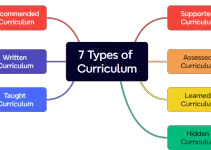How long should a literature review be? Here are some guidelines.
Considerations on the Length of the Literature Review
One of the critical questions to ask when targeting the number of words or number of pages of the literature review is:
Why and for whom are you writing the literature review?
This question requires you to be clear about the 1) purpose of your research, and 2) the intended audience of the literature review. I expound on these two considerations to determine how long a literature review should be.
Purpose
The goal of a literature review is to enable you, the researcher, to be knowledgeable of the existing research and arguments relevant to a particular topic or area of study under your discipline. The output of such understanding is a written report that systematically organizes and analyzes the literature to reveal differing points of view or to show opportunities for further study.
Specifically, the following are the purposes of a literature review that serve as the basis for the length of the literature review:
- to convince the research evaluator of the significance of the proposed research project (e.g. research proposal)
- to show that your research is important and original (e.g. thesis or dissertation)
- to emphasize the worthiness of pursuing the research (e.g. research proposal)
- to highlight a gap in knowledge (e.g. thesis, dissertation, or journal article)
- to fulfill a course requirement (e.g. a semestral requirement to show your understanding of the literature within your discipline)
- to identify the need for additional research (e.g. inconclusive findings in journal articles)
- to synthesize the literature on a particular topic of interest (e.g. journal article)
- to provide new interpretations of the findings
- to discuss flaws in the existing studies
While the purposes of the literature review overlap in the list, there are basically five instances that suggest how long a literature review should be, namely:
- as a chapter for a thesis or dissertation,
- as a section of a journal article,
- as the main content of a journal article,
- as part of a research proposal, and
- as a course requirement.
Audience
Evaluators of a research proposal
If your intention is to get your research proposal approved by a team of evaluators, you need to convince them of the significance and worthiness of the proposed research project. If you are asking for funds or applying for a grant, your literature review should emphasize why the research output is important to the funding institution. What’s in it for the funding institution?
Hence, this means you must be thoroughly familiar with the funding organization’s goals, objectives, mission and vision.
Thesis or Dissertation Panel
The thesis panel composed of professors in your field needs to be convinced that you have read the essential literature to replicate, verify, validate, contextualize, and apply theoretical knowledge about the different aspects of the particular discipline you are specializing in. Thesis defense demands familiarity with landmark studies and theories that masteral level students need to be familiar with.
The dissertation panel expects the doctoral degree candidate to generate new knowledge in the field. Greater demand for critical analysis of the literature is required to attain this degree. Master’s degree candidates essentially tests theories while doctoral degree students come up with a new theory in their area of specialization (see post on theory testing and theory building).
The literature review of a graduate student typically comprises 20-40 studies. In writing a dissertation, the candidate needs to demonstrate greater depth and breath of learning on the topic tackled. Breadth of learning refers to how knowledgeable the candidate is about a subject, while depth of learning pertains to the extent to which specific topics are explored, expounded, and focused upon as making an incisive analysis of the issue or concern at hand.
The gap in knowledge which the research aims to fill in must be highlighted by the graduate student. Doing so would enlighten the thesis or dissertation panel why the research is important.

Practitioners of the Field of Specialization
Writing in scientific journals requires literature reviews that meet the publication’s guidelines. Typically, the audience of scientific journal comprises practitioners of similar interest to the author. The literature review is typically concise and direct to the point to match the research objectives.
Course Professor
Your course professor may comprises to test your knowledge of research on a particular subject. There may be no need for you to show where the gap in knowledge is. That would be a tedious task to make in a one semester course. Your write up would show your familiarity with major areas of study and key findings of researchers on topics of interest.
In contrast, when you are writing a literature review for a course, your professor may want you to show that you understand what research has been done, giving you a base of knowledge. Here, you may not need to focus as much on proving where the gaps in knowledge lie, but that you know what the major areas of study and key ideas are.
How Long Should a Literature Review Be?
While there are discrepancies in the prescribed length of the literature review between academic institutions, scientific journals, or research projects, the length of the literature review follows some general rules of thumb. I expound on this idea in the next section.
1-2 pages if part of a research proposal
Given the competitive nature of a research proposal for funding, the literature review would be 1-2 pages of relevant and recent articles. The literature review for a grant proposal includes only those key studies that show your study’s importance.
At least 20 pages for a thesis or dissertation
The number of pages for a thesis or dissertation varies between academic institutions. The rule of thumb, however, is around 15 to 25% of the total number of pages or words. The University of Kent recommends 8-10 noteworthy peer-reviewed and landmark articles for an 8,000 word manuscript. The write up typically composes a chapter of the manuscript.
Bear in mind, however, that this largely depends on the subject discussed by the researcher. If it’s a mathematics dissertation, chances are, the number of pages of a thesis or dissertation would be much lesser than those written in psychology. It would be tedious and inappropriate to express mathematical equations using words.
A few pages
It is common to see 1-2 pages of literature reviews in a scientific journal following the IMRAD format. The authors typically include only the recent and important pieces of literature that will aid in the appreciation of the brief report on a particular issue or concern.
Since scientific journals typically accept 10-20 pages of single-spaced manuscripts, the literature review needs to be brief and to the point. With the exception, of course, of a paper devoted to an extensive review of literature on a particular topic.
Final Note
What then is the answer to the question of how long should a literature be?
This article attempted to answer the question by reviewing articles on the prescribed length of the literature review. Essentially, there is no hard and fast rule but rough approximations to serve as a guide for researchers.
To sum it all up, four things define the length of the literature review, namely:
- the purpose of the literature review,
- the intended audience,
- the nature of the subject, and
- the research objectives.
It makes sense that the researcher exercise his or her good judgement as the authority of the research topic. If he or she can express with clarity the need for current research through the literature review, succinctly or comprehensively, as required for the audience to appreciate the research, then the length of the written output need not be a major constraint for good scholarship.
References
Skills for Learning (2018). Guide to planning your dissertation [online]. Wolverhampton: University of Wolverhampton. [Accessed on October 31, 2022]. Available at: http://www.wlv.ac.uk/skills.
St. Mary’s University (2022). Literature review. Retrieved 31 October 2022, from https://www.smu.ca/academics/literature-review.html
University of Southern California (2022). Writing a Short Literature Review. Retrieved 31 October 2022, from http://dissertationedd.usc.edu/writing-a-short-literature-review.html
University of Kent (2022). Writing literature review. Retrieved 31 October 2022, from https://www.kent.ac.uk/guides/literature-reviews/literature-reviews


